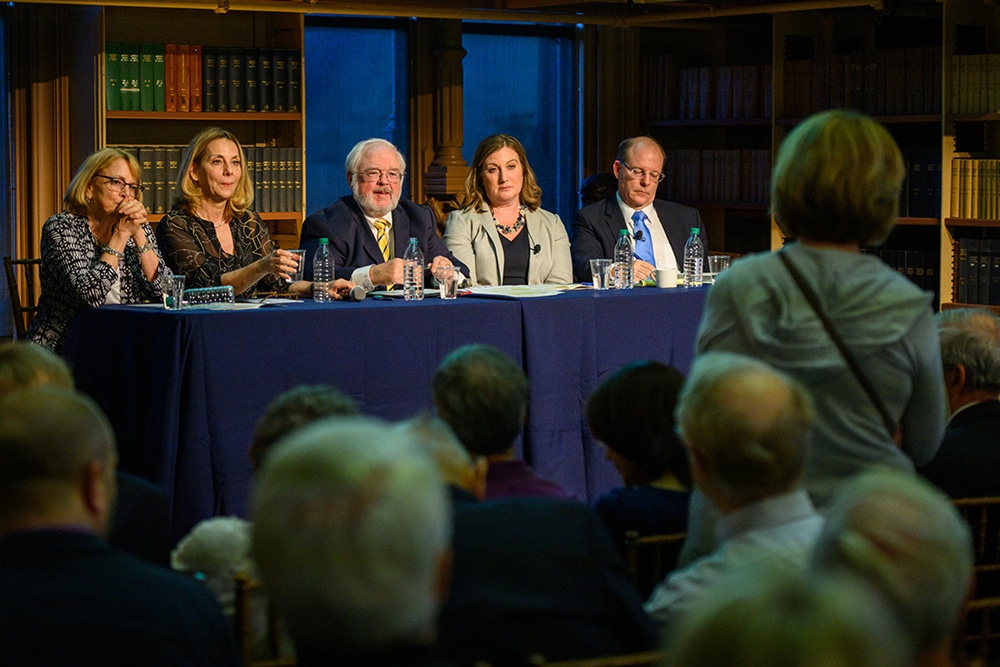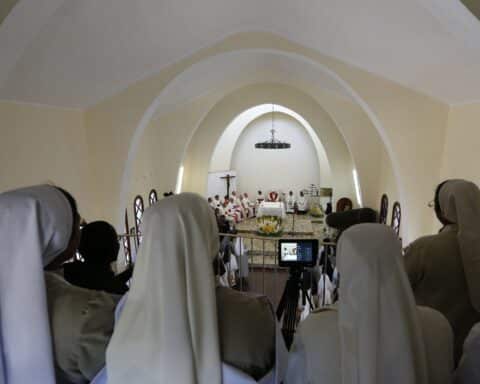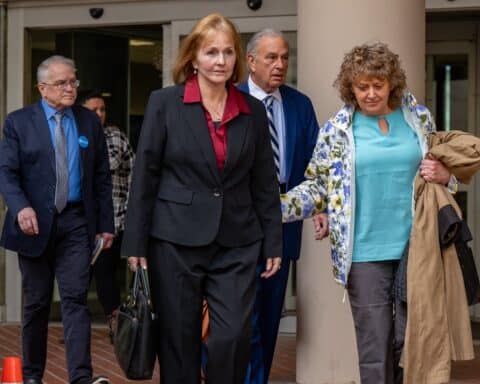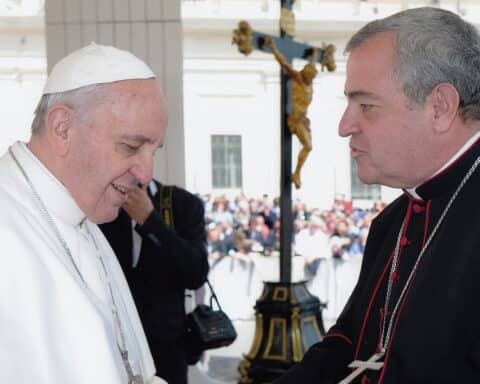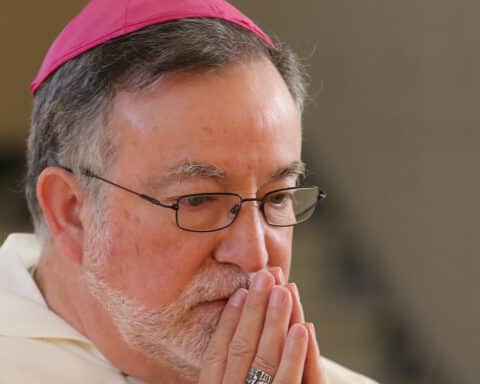Confronting clericalism, giving victim-survivors “a voice at the table” and holding Church leaders accountable are among the key recommendations in a new Georgetown University report that examines how the Catholic Church can better respond to the clergy sex abuse crisis.
An 18-page executive summary of the report includes 10 “strategic directions” forward, such as proposals to reform seminary formation so that men in priestly formation are less isolated from lay Catholics as well as stressing a need to incorporate more diversity in Church leadership.
“People’s patience is gone. … Business as usual in how we form priests, how priests are appointed, how bishops are selected, is not going to cut it anymore,” said John Carr, the director of the Initiative on Catholic Social Thought and Public Life at Georgetown University.
On Monday night, the initiative released the report of its “National Convening on Lay Leadership for a Wounded Church and Divided Nation,” a gathering of 50 Catholic leaders who met this past summer to discuss the clergy sex abuse scandals and strategize on directions for reform and renewal.
Carr, the former executive director of the U.S. Conference of Catholic Bishops’ Department of Justice, Peace and Human Development, told Our Sunday Visitor that the two-day convening in June represented the “healthiest, most substantive, most strategic” discussion he has seen on the issue.
“Our convenings have often been big speeches and wonderful panels. This was not that,” Carr said. “This was about strategies. This was about how to turn anguish into action.”
Kim Daniels, associate director of the Initiative on Catholic Thought and Public Life, told Our Sunday Visitor that the national gathering that included Catholic university presidents, diocesan officials, ministry leaders, victim-survivors, journalists and scholars was a “roll-up-your-sleeves, get-down-to-business, honest conversation.”
“One of the directions we took from this convening is that it’s a time to be both humble and bold. It’s a time to learn to listen more,” Daniels said. “It’s a time to look to people with different perspectives, to not hunker down in our bubbles but to reach out to others and to reach across divisions.
“At the same time, it’s a time to call for bold promotion of renewal and reform,” Daniels added. “And that’s in partnership with our bishops, that’s in partnerships with our fellow Catholics, and we look forward to being part of that conversation.”
Going forward, looking back
Among the key takeaways from the convening’s report, Daniels said, is the importance of including victim-survivors in conversations about the abuse scandals and overcoming the culture of clericalism, which the report identifies as a major factor in the abuse crisis.
“At the same time, it’s important for us to take the kinds of steps that will change that culture, so that involves issues like bringing more women into the room, bringing more diverse voices into the room when decisions are made, including people of color and people who are under-represented in those conversations,” Daniels said.
“Finally, I would say what we learned is that this crisis isn’t over,” Daniels added. “The anguished anger of the laity goes on, and the jury is still out on whether the Church’s response will be effective.”
Church leaders have taken several steps in recent months to hold bishops accountable. In May, Pope Francis promulgated his motu proprio, Vos estis lux mundi (“You are the light of the world”), which requires the establishment of new procedural norms for investigating crimes by bishops, including allegations of sex abuse and cover-ups. On June 12, the U.S. Conference of Catholic Bishops voted to implement a national reporting system that will permit people to file complaints, online or through a toll-free telephone number, against bishops. The system, which will be operated by an outside vendor, is to be in place by May 31, 2020.
Carr said people will be watching if the bishops will implement the new accountability measures, and if they will include the laity as equal partners instead of observers. After all, the hierarchy’s loss of moral authority has arguably crippled the Church’s voice in public life, Carr said.
“That’s been a missing cost of the sex abuse crisis,” Carr said. “When the country is divided on the unborn, on the undocumented, on even telling the truth, the voice of the Church needs to be heard, and right now the hierarchy can’t be the most impactful voice. So the rest of us have to step up.”
Brian Fraga is a contributing editor for Our Sunday Visitor.

